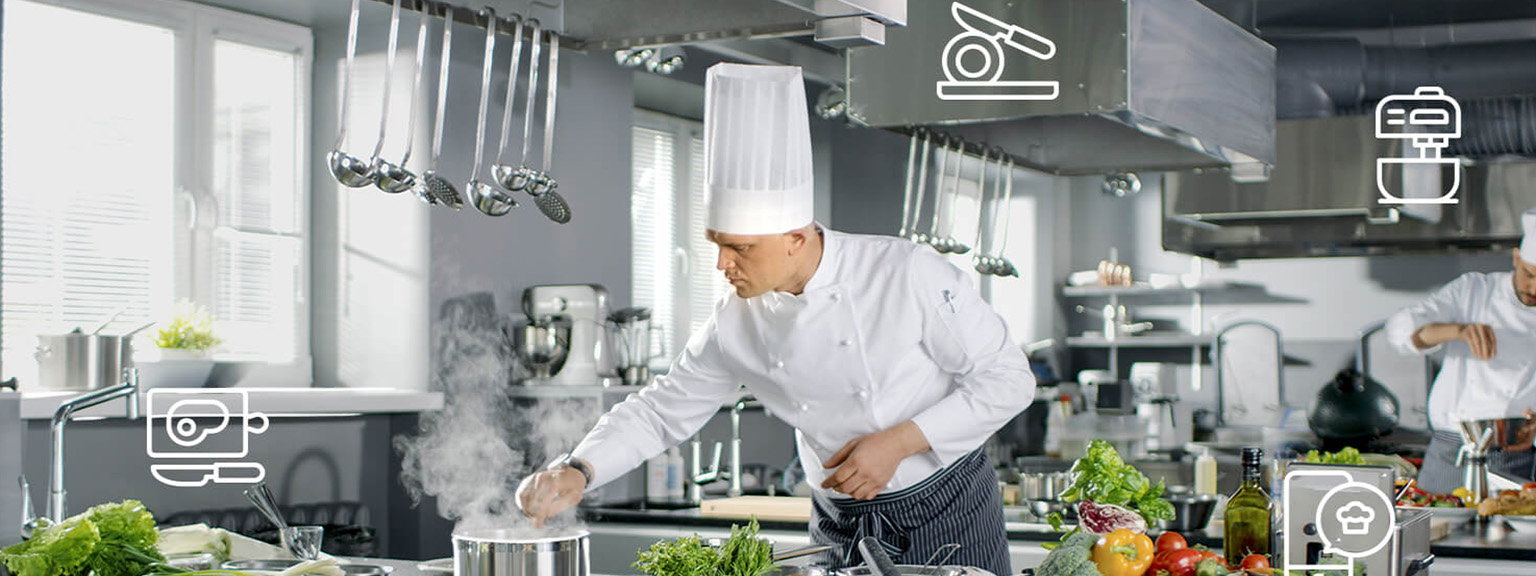The food and beverage industry is one of the fastest-growing sectors in Dubai, and cloud kitchens—also known as virtual kitchens or ghost kitchens—are becoming an increasingly popular business model. Unlike traditional restaurants, cloud kitchens focus solely on food delivery and operate without a dine-in facility. This innovative model reduces overhead costs and allows businesses to adapt quickly to changing consumer preferences. If you’re considering setting up a cloud kitchen in Dubai, this guide will cover everything you need to know to get started successfully.
1. Understanding the Cloud Kitchen Business Model
A cloud kitchen is a commercial kitchen space that provides food for delivery or takeout. These kitchens can host multiple brands or menus under one roof, often referred to as multi-brand kitchens. They operate solely through online orders placed via food delivery platforms or direct orders through a dedicated website or app.
Benefits of Cloud Kitchens
- Low Overheads: With no need for a prime location or dine-in area, cloud kitchens significantly reduce costs associated with rent, utilities, and front-of-house staff.
- Scalability: Expanding a cloud kitchen business is relatively easier and more cost-effective compared to traditional restaurants.
- Flexibility: Cloud kitchens can quickly pivot menus or concepts to adapt to consumer trends.
Key Considerations
- High Competition: The low entry barriers have led to a saturated market. Success requires a strong brand, excellent food quality, and effective marketing strategies.
- Dependence on Delivery Platforms: Cloud kitchens rely heavily on food delivery platforms like Zomato, Talabat, and Deliveroo. This dependence can affect profit margins due to platform fees.
2. Choosing the Right Location
Location is crucial for a cloud kitchen, but it doesn’t require high foot traffic like a traditional restaurant. Instead, the focus should be on proximity to your target market to ensure efficient delivery times and low delivery costs. You can set up your cloud kitchen in:
Mainland Dubai
- Advantages: You can serve the entire city, including high-density residential areas and business districts.
- Drawbacks: Setting up in mainland Dubai may involve higher rent and stricter regulatory requirements.
Dubai Freezones
- Advantages: Freezones like Dubai Silicon Oasis and Jebel Ali Free Zone offer more favorable business conditions such as tax exemptions, 100% foreign ownership, and simplified setup procedures.
- Drawbacks: There are limitations on directly serving the local market, and you may need a local distributor for deliveries outside the freezone.
3. Legal Requirements and Licensing
Setting up a cloud kitchen in Dubai requires obtaining the appropriate licenses and adhering to local regulations. The key licenses and permits you’ll need include:
Food and Trade License
- Professional License in Dubai: This license is necessary for any business offering food preparation and delivery services.
- General Trading License in Dubai: If you plan to operate multiple brands or trade in different food items, a general trading license might be required.
Health and Safety Permits
- You must comply with food safety standards set by the Dubai Municipality, including kitchen layout, hygiene practices, and food storage regulations.
Delivery Licenses
- If you plan to handle deliveries in-house, you’ll need additional permits for your delivery vehicles.
Navigating these requirements can be complex, and it’s advisable to consult with business support services in Dubai or PRO services to streamline the process and ensure compliance.
4. Selecting the Right Kitchen Space
When choosing a kitchen space for your cloud kitchen, consider factors like kitchen size, layout, equipment, and utilities. Many companies offer fully-equipped kitchen spaces on a lease basis, which can significantly reduce your initial investment.
Shared Kitchen Spaces
- Advantages: Shared kitchen spaces are equipped with essential appliances, reducing the need for capital expenditure. You also benefit from shared operational costs like utilities and maintenance.
- Drawbacks: Limited flexibility in kitchen design and potential scheduling conflicts with other tenants.
Independent Kitchen Spaces
- Advantages: Complete control over kitchen layout and operations. You can customize the space according to your specific needs.
- Drawbacks: Higher initial investment in kitchen equipment and utilities. You’re also solely responsible for operational costs.
5. Technology and Online Presence
Technology plays a crucial role in the success of a cloud kitchen. From order management to food delivery, investing in the right technology can streamline operations and enhance customer experience.
Online Ordering System
- Develop a user-friendly website or app that allows customers to place orders directly. This can help reduce dependency on third-party platforms and improve profit margins.
Integration with Delivery Platforms
- While direct orders are ideal, it’s essential to have a presence on popular delivery platforms like Zomato, Talabat, and Deliveroo to reach a wider audience.
Kitchen Management Software
- Implement a robust kitchen management system that integrates order processing, inventory management, and delivery tracking.
6. Marketing Your Cloud Kitchen
With no physical storefront, your marketing strategy will need to focus heavily on online channels. A strong digital presence is essential to attract and retain customers.
Social Media Marketing
- Use platforms like Instagram, Facebook, and TikTok to showcase your dishes, share behind-the-scenes content, and engage with your audience.
Search Engine Optimization (SEO)
- Optimize your website and online menu for relevant keywords like “food delivery in Dubai” and “best cloud kitchen in Dubai.” This can help increase your visibility on search engines and attract more direct orders.
Partnerships and Promotions
- Collaborate with food influencers and bloggers to reach a broader audience. Run promotions and discounts through delivery platforms to attract first-time customers.
7. Hiring and Training Staff
A cloud kitchen requires skilled chefs, kitchen assistants, and possibly delivery drivers if you’re handling deliveries in-house. Hiring the right staff is crucial for maintaining food quality and operational efficiency.
Staff Training
- Invest in training programs to ensure all staff members are well-versed in food safety standards, kitchen operations, and customer service.
Managing Labor Costs
- Labor costs are one of the biggest expenses for any food business. Consider using part-time or freelance staff during peak hours to manage costs effectively.
8. Exploring Business Setup Packages in Dubai
For entrepreneurs looking for a hassle-free setup, many firms offer business setup packages in Dubai specifically tailored for cloud kitchens. These packages typically include:
- Assistance with company registration and licensing
- Lease negotiation for kitchen space
- Procurement of kitchen equipment
- Staff recruitment and visa processing
Choosing the right business setup package can simplify the entire process and help you get started more quickly.
9. Navigating the Visa Process
If you’re planning to relocate to Dubai or hire expatriate staff, you’ll need to navigate the visa process. For long-term residency, consider consulting with golden visa consultants in Dubai. The Golden Visa program offers long-term residency options for investors and entrepreneurs, making it an attractive option for those planning a long-term commitment to their business in Dubai.
Final Thoughts
Setting up a cloud kitchen in Dubai is a lucrative business opportunity, but it requires careful planning, strategic location selection, and compliance with local regulations. By leveraging the right technology, focusing on online marketing, and utilizing business support services in Dubai, you can successfully launch and grow your cloud kitchen business.
Whether you choose a mainland or freezone business setup in Dubai, the key to success lies in understanding the market, offering high-quality food, and providing excellent service. With the right strategy and support, your cloud kitchen can thrive in Dubai’s dynamic and competitive food delivery market.

























